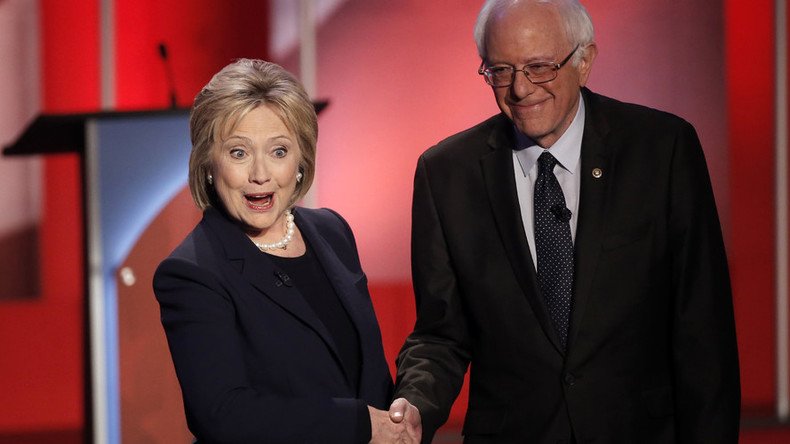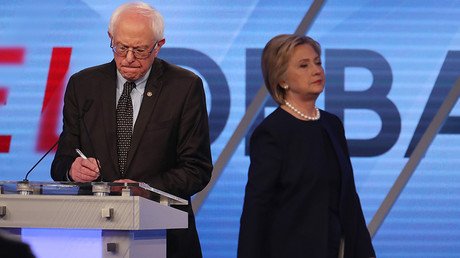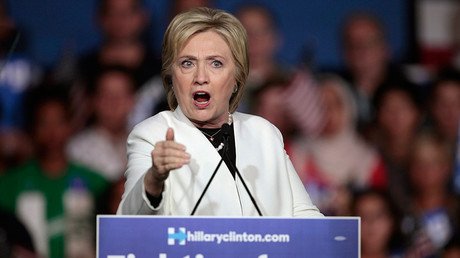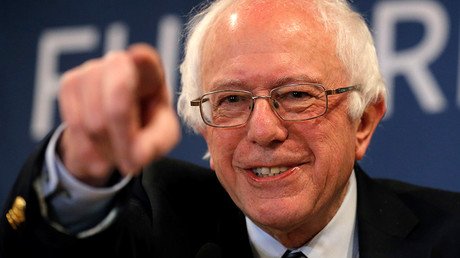Hillary and Bernie, it’s time to start talking foreign policy

It’s time for Democratic presidential hopefuls, Hillary Clinton and Bernie Sanders, to dedicate an entire debate to foreign policy so the world really knows where they stand on the crucial issues.
There’s a misconception among Democrats — at least the ones I know — that because their candidates aren’t usually quite as raving mad as some on the Republican side, they don’t need to spend much time debating each other on foreign policy. Whatever happens, the thought goes, at least they won’t be another George Bush and they’re probably in agreement on most issues anyway, right?
Wrong.
There are some clear contrasts between Clinton and Sanders on foreign policy. The public just hasn’t been given much of an opportunity to hear them. In the four one-on-one debates between the Democrats so far this year, foreign policy has featured significantly in two. If you were listening carefully, you could pick out some key areas where Sanders differs with Clinton, but neither debate really got into the nitty-gritty of matters.
In contrast with Clinton, Sanders hasn’t been as vocal on foreign policy. He has focused on economic issues and has sparked a new discussion around fairness, equality and corruption that never would have happened without him. In doing so, he has closed the gap between himself and the frontrunner significantly.
A foreign policy debate would give Sanders another area to draw contrasts. Given more time to delve into it, he could question Clinton’s decisions on Iraq and Libya, as well as her plans for Syria. She would be forced to respond in more than just soundbites. Likewise, Sanders would himself would be forced to give more detail on his own foreign policy agenda.
Let’s look at what the two have said on the topic, so far — and in the interest of space limitations, we’ll stick to the four debates they’ve had one-on-one.
On Syria
In their first one-on-one debate in New Hampshire on February 4, Clinton said she supported the US air campaign and the use of “special forces” in Syria, but did not support the use of combat troops on the ground. Sanders agreed with “much of” what she said, but used the opportunity to bring up her vote for the Iraq war in 2002, which he said “created barbaric organizations like ISIS”.
FishTank: Clinton campaign could face legal troubles on the campaign trail [VIDEO] https://t.co/eSCVW3MavP@LindsayFrance@AriRabinHavt
— RT America (@RT_America) March 10, 2016
He then warned against the US becoming involved in “perpetual war” in the Middle East and argued that it “must be Muslim troops on the ground that will destroy ISIS, with the support of a coalition of major powers” — including Russia.
In a later debate on February 11 in Wisconsin, Sanders disagreed on the need for a no-fly zone in Syria, making another distinction between himself and his opponent, but it was mentioned very briefly before he went off on a tangent about Cuba.
A foreign policy debate would allow for fewer tangents, fewer soundbites and more substance.
On Libya
During that second debate, Sanders brought up NATO’s intervention in Libya (pushed for by Clinton) and gave a little more insight into his thinking on regime change. “This has gone on 50 or 60 years where the United States has been involved in overthrowing governments,” he said, before giving a brief history of the US and British overthrow of the democratically-elected Prime Minister of Iran Mohammad Mosaddegh in 1953, and the “unintended consequences” it produced.
When Clinton tried to incorrectly claim that Sanders had “voted for” regime change in Libya, he corrected her. Washington Post fact-checkers noted later that he had in fact not voted explicitly for “regime change” and had not been in favor of military action in Libya.
Sanders’ willingness to bring historic context into discussions of current and future foreign policy where Clinton does not, is indicative of overall better judgement and an ability to learn from mistakes.
On Iran
Clinton, who has always been hawkish on Iran (recall in 2008 she warned that the US could “totally obliterate” the country if they wanted to) is still as hawkish on the subject today. Where she has argued against any “normalization” of relations with Tehran for fear of “removing leverage” in negotiations, Sanders has argued for moving more quickly towards normalization, comparing the situation with that of the US relationship with Cuba.
Overall, he appears to take a softer stance on the question of Washington talking to its enemies than Clinton does: “When you ran against Senator Obama you thought him naive because he thought it was a good idea to talk to our enemies. I think those are exactly the people you have to talk to and you have to negotiate with,” he said.
On Russia and ‘the biggest threat’
Asked during the New Hampshire debate which country was the biggest threat to US security, North Korea, Iran or Russia, Sanders said “ISIS” — which again indicates a subtle difference between himself and Clinton. He is less willing to go shouting about the perceived baddies and more interested in tackling the real ones.
Pressed on the issue, he chose North Korea as a potential threat — and although he commented on Russia’s “adventurism” in Crimea, he made the point to disagree with Secretary of Defense Ash Carter’s assessment of Russia as the greatest threat, because unlike North Korea, “Russia lives in the world”.
Clinton defended Carter’s assessment with an answer that was dramatic and exaggerated, to say the least. She asserted that Russia was “trying to move the boundaries of post-World War II Europe” and that Putin was “beginning to explore” whether he could make “inroads” into the Baltics. The first part of her statement is dramatic, but debatable — the second part, however, is plucked from thin air.
In general, although he does agree with Clinton on Russia’s “aggressiveness” he has been far less vocal about it. He does however, appear to have fallen into the trap of thinking that everything Putin does abroad is “because his economy is increasingly in shambles and he's trying to rally his people in support of him”.
This is Sanders buying into the line that Putin’s actions in Crimea and Syria are nothing more than distractions or prime-time entertainment for the evening propaganda bulletin. If he were to become president, Sanders must quickly learn that this a very naive place to begin in trying to understand Russia’s foreign policy motivations.
On Latin America
In the latest debate between the two candidates on March 9 in Miami, foreign policy was not big on the agenda, but Sanders did manage to use a question about Latin America to again highlight that he is not the regime-change candidate.
He argued passionately against US interventions and interference in Latin America. It was wrong, he said, for the US to try to invade Cuba in 1961; wrong for the US to attempt to overthrow the Nicaraguan government and wrong to try to overthrow the democratically-elected government in Guatemala in 1954. Throughout its history with Latin America, he said the US had been operating under the assumption that it “had the right do anything that it wanted” in the region and that in addition to that being unacceptable, it had created huge amounts of anti-American feeling.
The Sanders doctrine
Sanders may be a little hesitant to make foreign policy a major contrasting issues between himself and Clinton. His strategy thus far of hitting her on economic issues has been working. He no doubt knows well that if you don’t come off like a full-fledged hawk — especially against the ‘experience’ candidate — this leaves you open to the claim that you are weak, or worse, stupid. He has seen, for example, the horrified reaction from the media and political establishment that any toned-down rhetoric on Russia can cause.
When debate moderator Chuck Todd asked Sanders in New Hampshire why he had not laid out his own “foreign policy doctrine” in detail, Sanders responded by giving a rough idea of what that doctrine would look like — and it was all about moderation and coalitions.
“We cannot be the policeman of the world,” he said. “So I would say the key doctrine of the Sanders administration would be no, we cannot continue to do it alone; we need to work in coalition.”
Defending himself against Clinton’s argument that experience mattered more, Sanders has admitted that yes, she has more experience, but experience isn’t much without good judgement. The little we’ve seen so far of Sanders’ thinking on foreign policy indicates that he has the better judgement.
The American public need to be given more of a chance to hear it.
The statements, views and opinions expressed in this column are solely those of the author and do not necessarily represent those of RT.
















